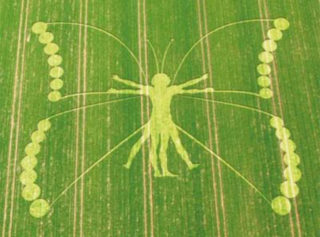Posthumanities, Animalities, Environments

Over the last few decades, the status of ‘the human’ has been challenged on a number of fronts. Scientific knowledge of animal culture, mind and behaviour has questioned presumptions of human uniqueness. New media, robots and other technologies have transformed our sociality, producing new ways of living, dying and communicating with nonhuman others. Climate change and the Anthropocene thesis have brought to the fore our embeddedness in a wider environment subject to entangled processes of construction, destruction and extinction. And with these reconfigurations of the place of the human come questions about the capacity of traditional humanities scholarship to adequately account for these dimensions of its object of study.
The Centre for Culture and Technology’s Posthumanities, Animalities, Environments research program is dedicated to identifying the constraints and the opportunities these cultural and intellectual developments broach. Working at the overlap of three fields of contemporary scholarly innovation — the posthumanities, the animalities, and the environmental humanities — the program seeks to develop transformative concepts and methods for humanities research in the Anthropocene.
Key problems tackled by this program include:
- understanding the role, status, potential and limits of human values and human agency in today’s changing world of new relationships, technologies, knowledge and risks.
- formulating and assessing new methodological practices appropriate to the changing human condition and to the changing demands of humanities research.
- identifying how to anticipate and respond to the challenges posed to contemporary political, social, economic and conceptual systems by an increasing recognition of human entanglement with nonhuman systems, forces and entities.
- determining the potential to compose new relations with various others — animals, machines, things, environments — and how to anticipate and evaluate the effects of these relations.
Attempts to address these and related problems are currently underway in projects examining the history and effects of changing zoo biology practices; identifying the challenges presented to contemporary understandings and practices of democracy by increasing public concern for animal welfare; devising methods for pursuing fieldwork as an intellectual and empirical practice of philosophy; analysing forms, capacities and technologies of ‘attention’ in terms of their ecological as well as their economic significance; and conceiving the potential for response and responsibility on the part of both humans and nonhumans in the wake of climate change and anthropogenic extinction.
Researchers in the Posthumanities, Animalities, Environments program draw on concepts and methods from cultural studies, critical theory, posthumanism, science and technology studies, animal studies, and/or the environmental humanities to contribute to a range of new fields and approaches:
- Multispecies ethnography/etho-ethnology: ethnographies of worlds produced not only by human agents but in collaboration with nonhuman actants such as animals.
- Philosophical ethology: exploring the myriad lessons the humanities and social sciences can learn from ethological experiments in animal behaviour and human-animal collaboration — and vice versa.
- Extinction studies: engaging both with discourses of conservation significance and with entangled material processes of death and generation in order to trace the unravelling of social and ecological communities and newly generative modes of attachment and reworlding.
- Field philosophy: developing new methodologies for conducting humanities research by speculating on and experimenting with the kind of field practices that might emerge within philosophy.
- Biopolitics and the nonhuman: identifying and analysing the scope for contemporary structures and rationales of politics and government to accommodate changing relations between human and nonhuman forms of life.
Program leader
Dr. Matthew Chrulew, Senior Curtin Research Fellow
Researchers
Dr Robert Briggs, Cultural Studies, MCASI
Prof Tama Leaver, Internet Studies, MCASI
Dr Thor Kerr, Senior Lecturer, Communication and Cultural Studies, MCASI
Professor Michele Willson, Associate Provost
Dr Rick de Vos, CCAT Adjunct Research Fellow
Projects
Reading Culture, Animality and Technology (RCAT) discussion group
Extinction Studies Working Group
Human/Robot Communication
Environmental Humanities
Bewildering Animals: Towards a New Philosophical Ethology
The Environments of Science Fiction
Zoos, Reintroduction and the Future of Conservation
Journals
Ctrl-Z: New Media Philosophy, eds. Niall Lucy and Robert Briggs. ISSN 2200-8616.
Environmental Humanities, ISSN 2201-1919.
Recent Events
2019
Symposium Ethopower & Ethography: The History, Philosophy and Future of Ethology, IV was held at Curtin St Georges Terrrace over Thursday 14th – Saturday 16th November. Convened by Matthew Chrulew as part of his DECRA project, with support from Curtin’s Centre for Culture and Technology, the event featured international keynotes Brett Buchanan (Laurentian), Jean Langford (Minnesota) and Cary Wolfe (Rice) as well as a number of Australian and local speakers including Hollis Taylor (Macquarie), Thom van Dooren (Sydney), Robert Briggs (Curtin) and Dinesh Wadiwel (Sydney). The interdisciplinary symposium explored how new knowledge of animal behaviour transforms both ways of relating to animals and ways of writing about them. Follow this link for more information.
2018
The Ecotic Challenge: Political, Religious and Ecological Stakes of Autonomous Robotics. Embassy of France, Tokyo, Japan, 24 January 2018. Convened by Dominique Lestel (ENS & TUAT), Gentiane Ventour (TUAT) and Matthew Chrulew (Curtin).
2017
Field Philosophy and Other Experiments. École normale supérieure, Paris, France, 23-24 June 2017. Convened by Brett Buchanan (Laurentian University & ENS), Michelle Bastian (University of Edinburgh) and Matthew Chrulew (Curtin).
Recent Publications
“Field Philosophy and Other Experiments” special issue of Parallax (forthcoming 2018), ed. Brett Buchanan, Michelle Bastian and Matthew Chrulew.
“geo- (the earth and the earth sciences in humanities inquiry)” special issue of Ctrl-Z: New Media Philosophy 7 (2017), ed. Robert Briggs.
Chrulew, Matthew and Rick De Vos (2018) “Extinction”, in The Edinburgh Companion to Animal Studies, ed. Lynn Turner, Undine Sellbach and Ron Broglio. Edinburgh: Edinburgh University Press, 181-197.
